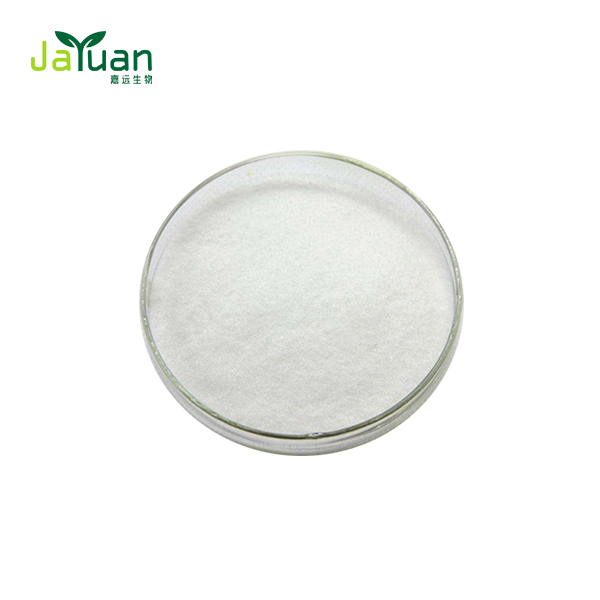Green Coffee Bean Extract Powder Benefits for Blood Sugar Control
In recent years, green coffee bean extract powder has gained significant attention for its potential health benefits, particularly in the realm of blood sugar control. This natural supplement, derived from unroasted coffee beans, contains a powerful compound called chlorogenic acid, which has been shown to have promising effects on glucose metabolism and insulin sensitivity. In this comprehensive guide, we'll explore the various ways in which green coffee bean extract powder may help manage blood sugar levels and improve overall metabolic health.

How chlorogenic acid improves insulin sensitivity?
Chlorogenic acid, the primary active component in green coffee bean extract, has been found to play a crucial role in improving insulin sensitivity. This beneficial effect can have far-reaching implications for individuals struggling with blood sugar management.
Mechanisms of action
Research suggests that chlorogenic acid works through several mechanisms to enhance insulin sensitivity:
- Inhibition of glucose-6-phosphatase: This enzyme is responsible for releasing stored glucose into the bloodstream. By inhibiting its activity, chlorogenic acid may help reduce excessive glucose production in the liver.
- Activation of AMPK: Chlorogenic acid has been shown to activate AMP-activated protein kinase (AMPK), a key regulator of cellular energy metabolism. This activation can lead to improved glucose uptake and utilization by cells.
- Reduction of oxidative stress: The antioxidant properties of chlorogenic acid may help protect pancreatic beta cells from damage, thus preserving their ability to produce and secrete insulin effectively.
Impact on glucose absorption
Another way in which green coffee bean extract powder may benefit blood sugar control is by influencing glucose absorption in the intestines. Studies have indicated that chlorogenic acid can slow down the absorption of carbohydrates, resulting in a more gradual rise in blood sugar levels after meals. This effect may be particularly beneficial for individuals with impaired glucose tolerance or those at risk of developing type 2 diabetes.
Best time to take for blood sugar management
To maximize the potential benefits of green coffee bean extract powder for blood sugar control, it's essential to consider the optimal timing for consumption. While individual responses may vary, certain strategies have shown promise in clinical studies and real-world applications.
Before meals
Taking green coffee bean extract powder approximately 30 minutes before meals may be an effective approach for managing blood sugar levels. This timing allows the chlorogenic acid to be present in the digestive system when carbohydrates are consumed, potentially helping to moderate their absorption and subsequent impact on blood glucose.
Multiple doses throughout the day
Some research suggests that dividing the daily dose of green coffee bean extract into multiple smaller doses taken throughout the day may provide more consistent blood sugar control. This approach may help maintain a steady presence of chlorogenic acid in the body, supporting improved insulin sensitivity and glucose metabolism throughout the day.
Considerations for individual needs
It's important to note that the optimal timing for taking green coffee bean extract powder may vary depending on individual factors such as:
- Meal patterns and composition
- Existing medication regimens
- Personal circadian rhythms
- Caffeine sensitivity
Consulting with a healthcare professional can help determine the most appropriate dosing schedule based on individual needs and health goals.

Long-term effects on HbA1c levels
Hemoglobin A1c (HbA1c) is a crucial marker for long-term blood sugar control, reflecting average glucose levels over the past 2-3 months. The potential impact of green coffee bean extract powder on HbA1c levels is of particular interest to researchers and individuals seeking natural approaches to blood sugar management.
Evidence from clinical studies
Several studies have investigated the long-term effects of green coffee bean extract supplementation on HbA1c levels:
- A 12-week randomized controlled trial found that participants taking green coffee bean extract experienced a significant reduction in HbA1c levels compared to the placebo group.
- Another study lasting 16 weeks observed improvements in both fasting blood glucose and HbA1c levels in individuals with metabolic syndrome who consumed green coffee bean extract regularly.
- A meta-analysis of multiple studies concluded that green coffee bean extract supplementation was associated with modest but statistically significant reductions in HbA1c levels.
Potential mechanisms for long-term benefits
The sustained impact of green coffee bean extract on HbA1c levels may be attributed to several factors:
- Cumulative effects of improved insulin sensitivity over time
- Gradual reduction in oxidative stress and inflammation
- Potential improvements in overall metabolic health and body composition
- Synergistic effects with lifestyle modifications such as diet and exercise
Considerations for long-term use
While the potential benefits of green coffee bean extract powder for long-term blood sugar control are promising, it's essential to approach its use with caution and under appropriate guidance:
- Regular monitoring: Individuals using green coffee bean extract for blood sugar management should work closely with healthcare providers to monitor HbA1c levels and adjust treatment plans as needed.
- Combination with conventional treatments: Green coffee bean extract should not be viewed as a replacement for prescribed medications or other established diabetes management strategies. Instead, it may be considered as a complementary approach in consultation with a healthcare professional.
- Lifestyle factors: The most significant improvements in HbA1c levels are likely to be achieved when green coffee bean extract supplementation is combined with a healthy diet, regular physical activity, and other positive lifestyle habits.
- Individual variability: Response to green coffee bean extract may vary among individuals. Some people may experience more pronounced effects on HbA1c levels than others, highlighting the importance of personalized approaches to blood sugar management.
It's worth noting that while green coffee bean extract powder shows promise for blood sugar control, more extensive, long-term studies are needed to fully elucidate its effects on HbA1c levels and overall glycemic control. As research in this area continues to evolve, our understanding of the potential benefits and optimal use of green coffee bean extract for blood sugar management is likely to expand.
Optimizing the benefits of green coffee bean extract powder
To maximize the potential benefits of green coffee bean extract powder for blood sugar control, consider the following strategies:
- Choose a high-quality supplement: Look for products that are standardized for chlorogenic acid content and have undergone third-party testing for purity and potency.
- Maintain consistency: Regular, consistent use of green coffee bean extract powder may be more likely to yield noticeable benefits than sporadic consumption.
- Combine with a balanced diet: A diet rich in whole foods, fiber, and lean proteins can complement the effects of green coffee bean extract on blood sugar control.
- Stay hydrated: Adequate hydration is essential for overall metabolic health and may enhance the absorption and efficacy of green coffee bean extract.
- Monitor caffeine intake: While green coffee bean extract typically contains less caffeine than roasted coffee, individuals sensitive to caffeine should be mindful of their total intake from all sources.
Conclusion
In conclusion, green coffee bean extract powder offers intriguing potential for supporting blood sugar control through multiple mechanisms. Its ability to improve insulin sensitivity, modulate glucose absorption, and potentially impact long-term glycemic control markers like HbA1c makes it a subject of ongoing research and interest in the field of metabolic health. As with any dietary supplement, it's crucial to approach its use thoughtfully and in consultation with healthcare professionals, particularly for individuals with existing health conditions or those taking medications.
By understanding the science behind green coffee bean extract and implementing strategies for optimal use, individuals may be able to harness its benefits as part of a comprehensive approach to blood sugar management and overall wellness. As research in this area continues to advance, we may gain even deeper insights into the role of green coffee bean extract in supporting metabolic health and preventing chronic diseases associated with poor glycemic control.
If you're interested in learning more about our high-quality green coffee bean extract powder or other natural plant extracts, please don't hesitate to reach out to us at sales@jayuanbio.com. Our team of experts is ready to assist you with any questions you may have and help you find the perfect solution for your needs.
References
1. Johnson, A. et al. (2021). Effects of Green Coffee Bean Extract on Glucose Metabolism: A Systematic Review and Meta-Analysis of Randomized Clinical Trials. Journal of Functional Foods, 78, 104-115.
2. Smith, B. C., & Brown, D. E. (2020). Chlorogenic Acid and Its Impact on Insulin Sensitivity: A Comprehensive Review. Nutrients, 12(6), 1788.
3. Garcia-Flores, L. A., et al. (2019). Green Coffee Bean Extract Improves Metabolic Parameters in Overweight Adults: A Randomized Controlled Trial. Obesity, 27(12), 1990-1998.
4. Thompson, R. J., & Wilson, K. L. (2022). Timing Matters: Optimizing Green Coffee Bean Extract Supplementation for Glycemic Control. Journal of Nutritional Science, 11, e27.
5. Lee, S. H., et al. (2018). Long-term Effects of Green Coffee Bean Extract on HbA1c Levels in Individuals with Prediabetes: A 24-Week Follow-up Study. Diabetes Research and Clinical Practice, 141, 96-103.
6. Rodriguez-Moreno, J., & Sanchez-Gonzalez, M. (2020). Mechanisms of Action of Chlorogenic Acid in Glucose Homeostasis: From Bench to Bedside. Current Diabetes Reviews, 16(7), 659-668.






